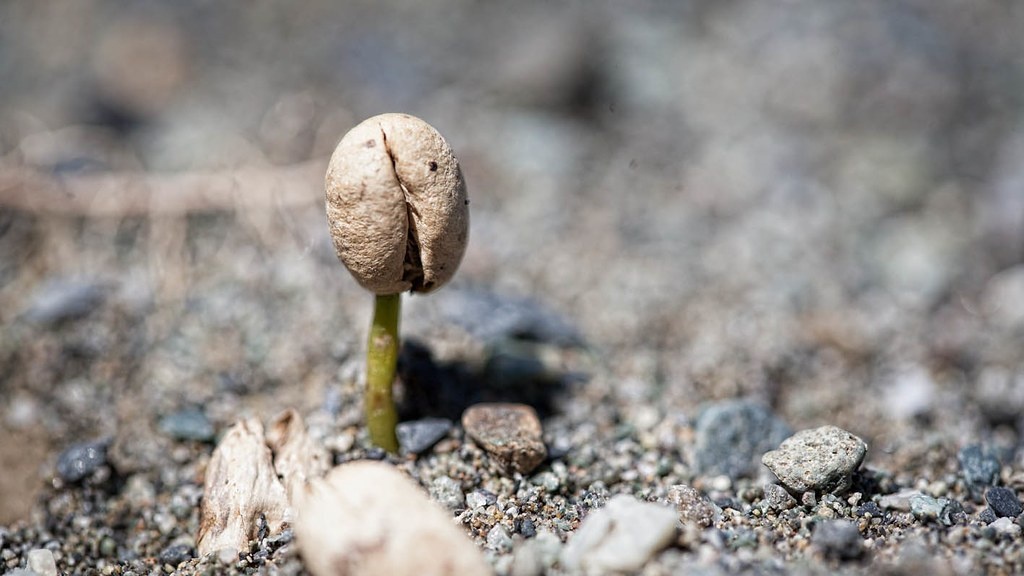1. Drinking Coffee at Night: Benefits and Risks
Drinking coffee late at night can be a controversial topic, with opinions ranging from those who consider it “necessary” for productivity and those who argue the adverse effects of caffeine. A growing body of research is providing more insight and understanding about the effect of caffeine and sleep deprivation. In terms of how helpful or “safe” drinking coffee later in the day or at night is, there are definitely benefits as well as risks.
It’s true that caffeine can help to stimulate alertness, increase focus and productivity, and boost energy levels. Caffeine is a mild stimulant that blocks adenosine, a chemical in the brain that is part of the body’s natural sleep-wake cycle. When adenosine is blocked, energy levels increase and alertness can increase too. Coffee has been shown to help people perform better in psychomotor functions, such as reaction time and decision-making, as well as enabling people to stay awake longer and feel more refreshed the next day.
However, the effects of caffeine can have varying effects depending on the individual. Some people can be sensitive to caffeine, meaning they can experience adverse side effects such as restlessness, insomnia, and irritability. Studies have also shown that too much caffeine can also lead to increased stress, further disrupting sleep.
Other factors to consider include when and how much coffee is consumed. Recent studies have found that drinking coffee too close to bedtime can have a significant impact on sleep quality and duration. According to the American Academy of Sleep Medicine, the optimal time for an individual’s last caffeine dose should be no later than six hours before bedtime.
Additionally, it’s important to note that late night coffee drinkers should limit their caffeine intake to lower doses, as numerous studies have shown that too much caffeine can lead to sleep disruptions. So it’s important to consider not only when you drink coffee, but also how much.
2. Alternatives to Drinking Coffee at Night
If you’re looking for alternatives to late night coffee consumption, there are other beverages and herbal teas which can provide an energy boost. Alternatives to coffee include yerba mate, green tea, and other herbal teas such as chamomile tea, which can have calming effects.
Yerba mate is one of the most popular coffee alternatives, as it contains an energizing mix of caffeine, vitamins, minerals, and antioxidants. Green tea is another popular alternative, as it contains caffeine and L-theanine, which can provide an energizing boost while reducing stress and improving focus.
There are also a variety of herbal teas that can provide an energy boost without the use of caffeine. Teas such as peppermint, chamomile, and wildberry can help boost energy levels, promote relaxation and aid in digestion. These types of teas are also great for relaxation and can promote better sleep.
It’s important to note that it can also be helpful to pursue a lifestyle of healthy sleep habits, including consistent bed and wake times, avoiding stimulants like caffeine close to bedtime, avoiding large meals late at night, and limiting exposure to screens before bed.
3. Impact of Coffee on Emotions
Although coffee is most often thought of as a stimulant, it can have different effects on emotions. Studies have shown that drinking coffee can help people to feel more energized and alert, while also increasing feelings of happiness and reducing feelings of stress and fatigue.
In addition, research suggests that coffee can help to improve focus and concentration, which can lead to increased productivity and improved overall performance. A study published in the Journal of Psychiatry & Neuroscience found that coffee can help reduce symptoms of depression and anxiety and has been associated with improved cognitive performance in people with anxiety and depression.
It’s important to note, however, that these studies were conducted on people who had a regular, moderate caffeine intake. So, while coffee may have beneficial effects, it’s important to remember that too much caffeine can lead to negative effects, such as restlessness, irritability and mood swings.
4. Effects of Drinking Coffee on Cognitive Function
Coffee can also aid in cognitive performance and focus. Studies have shown that coffee can help improve executive functioning, problem solving and memory. Caffeine has been found to help improve reaction time, vigilance, accuracy, and alertness, as well as promoting better memory recall.
In addition, caffeine can help people to focus longer on difficult tasks or information. Studies have also shown that consuming caffeine can help improve mental endurance, allowing people to stay on task for longer.
It’s important to mention that while caffeine can help improve cognitive performance and focus, it can also have negative effects. Too much caffeine can lead to restlessness, insomnia, irritability, and headaches. It is also important to note that caffeine tolerance is a real thing. If you are regularly consuming large amounts of caffeine, you may find that you need more and more caffeine to experience the same effects.
5. Potential Risks
Although there are potential benefits to drinking coffee at night, it is important to be aware of the potential risks. Firstly, drinking coffee too close to bedtime can disrupt your sleep and lead to insomnia. Secondly, you may be more prone to restlessness, irritability, and mood swings if you drink too much caffeine. Finally, you may become less sensitive to caffeine, meaning that you need more and more of it in order to feel the same effect.
In terms of how much caffeine is too much, a good rule of thumb is to keep your caffeine intake below 400 milligrams per day. Additionally, try to limit coffee consumption to no later than six hours before bedtime in order to reduce the risk of sleep disruptions.
6. Addiction and Overconsumption
It is also important to be aware of the potential risks of overconsumption. Caffeine is an addictive substance and too much can lead to tolerance, withdrawal symptoms, and even caffeine overdose. People with caffeine sensitivity or sensitivity to other stimulants should also be especially careful when consuming coffee, as excessive consumption could lead to unpleasant side effects.
Finally, it is important to note that caffeine can be dehydrating. So, if you’re drinking coffee late at night, make sure to drink plenty of water to stay hydrated.
7. Timing and Moderation
In order to reduce risks, it is important to understand the effects of caffeine and how it impacts your body. If you decide to drink coffee late at night, it is important to limit your caffeine intake and be aware of how it affects your body. Additionally, try to limit coffee consumption to no later than six hours before bedtime in order to reduce the risk of sleep disruptions.
If you are looking for alternatives, there are many beverage and herbal teas that can provide an energy boost without the use of caffeine. Alternatives to coffee include yerba mate, green tea, and other herbal teas such as chamomile tea, which can have calming effects.
Ultimately, it is important to be mindful of your caffeine consumption and be aware of the potential risks associated with overconsumption. If you decide to drink coffee at night, it is important to practice moderation and drink it at least six hours before bedtime.
8. Impact of Drinking Coffee on Physical Health
In addition to its potential effects on mental health and cognitive performance, drinking coffee at night can also have potential impacts on physical health. Studies have shown that there may be a link between caffeine consumption and an increased risk for certain health conditions, such as hypertension and irregular heartbeats.
Additionally, caffeine can increase blood pressure and blood sugar levels; this can be particularly concerning for those who suffer from diabetes or those at risk for developing diabetes. Similarly, those with acid reflux should be aware of the potential connection between caffeine and acid reflux.
On the other hand, moderate coffee consumption may have some beneficial effects on physical health. Research indicates that caffeine can reduce the risk of certain types of cancer and can reduce inflammation. Additionally, drinking coffee can improve physical performance, as caffeine has been shown to reduce fatigue and improve strength and endurance during exercise.
As with all caffeine consumption, it is important to be aware of the potential risks. If you decide to drink coffee late at night, be sure to practice moderation and drink responsibly.
9. Alternatives to Coffee
If you don’t drink coffee, there are numerous other ways to stay alert at night, such as exercising and eating a healthy diet. Exercising can stimulate alertness and energy, as well as improve mood. Eating a healthy diet can also keep your energy levels up throughout the day and help you stay alert at night. Eating foods high in healthy fats and proteins, such as nuts, seeds, whole grains, and lean meats, can provide lasting energy and provide essential vitamins and minerals that help keep your body running efficiently.
Additionally, staying hydrated can help you stay awake and alert. Drinking water regularly throughout the day and avoiding sugary energy drinks and sodas are good ways to ensure that you are getting enough water.
Finally, having a regular sleep schedule and using relaxation techniques can also help you stay alert at night. Going to bed and waking up at the same time every day can help your body adjust to a healthy sleep-wake cycle. And using relaxation techniques, such as deep breathing and meditation can also help you to stay focused and alert.
10. Final Thoughts
When it comes to drinking coffee at night, it is important to understand the potential benefits and risks. Caffeine can help to stimulate alertness, increase focus, and boost energy levels. However, coffee consumption too close to bedtime can disrupt sleep and result in adverse side effects. It’s important to practice moderation and limit caffeine consumption to no later than six hours before bedtime.
In terms of alternatives to coffee, there are numerous other beverages and herbal teas which can provide an energy boost. Alternatives to coffee include yerba mate, green tea, and other herbal teas such as chamomile tea, which can have calming effects. Exercising, eating a healthy diet, staying hydrated, and using relaxation techniques can also help to stay alert at night.





